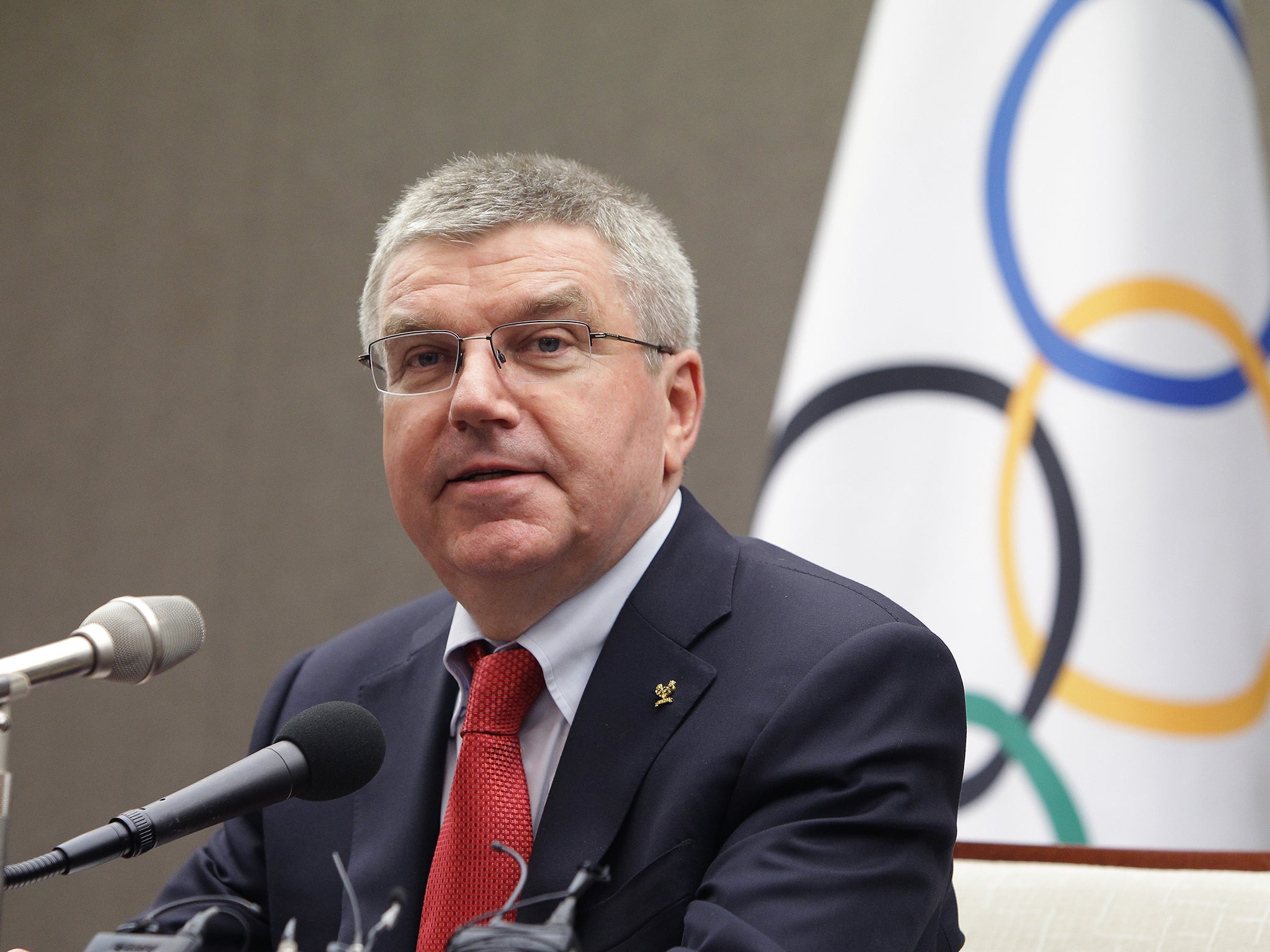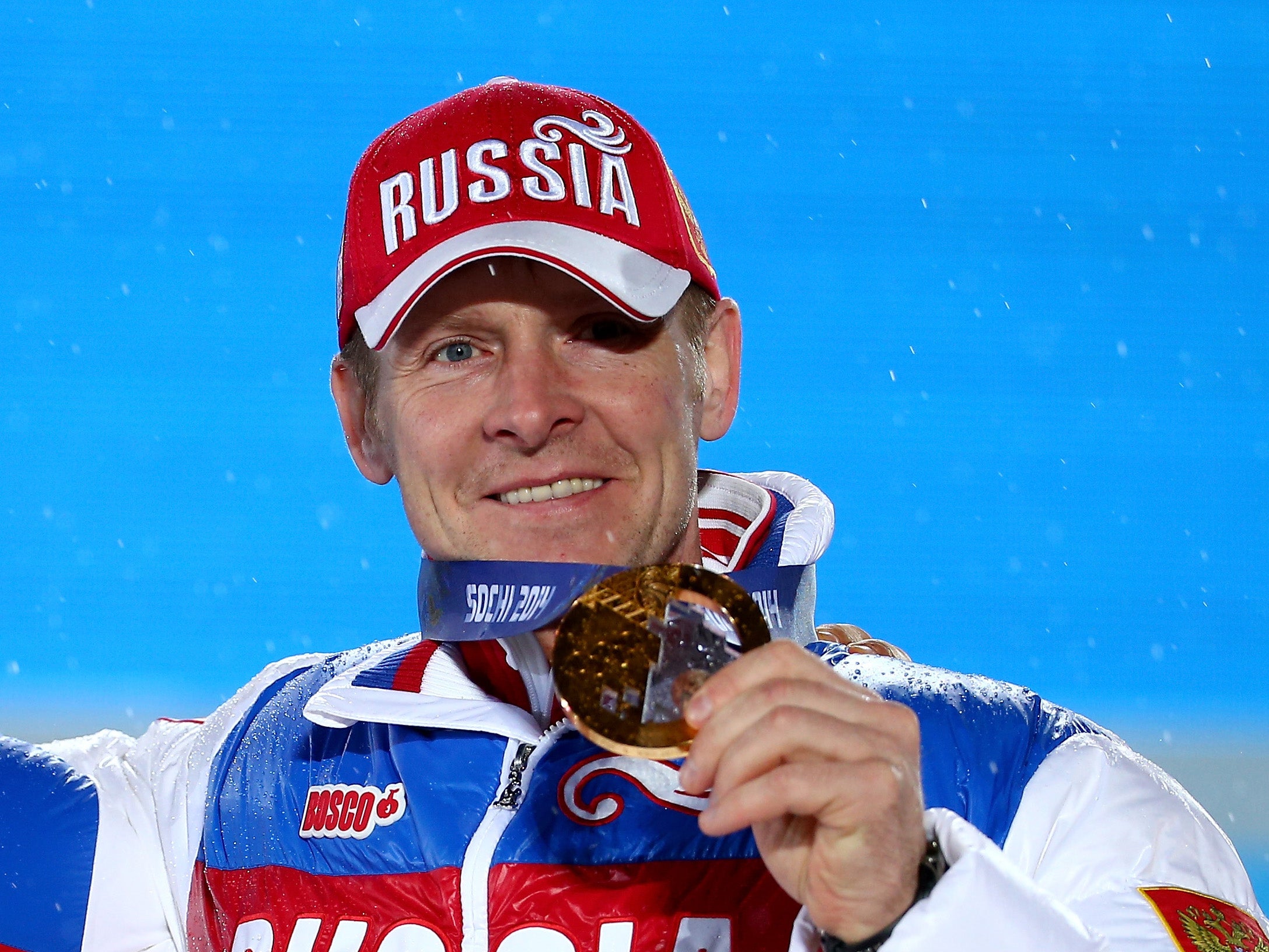Vladimir Putin hits out at 'politically-motivated' Russia ban from 2018 Winter Olympics
The Russian president has also confirmed he will not block any athletes from competing in Pyeongchang under neutral status

Your support helps us to tell the story
This election is still a dead heat, according to most polls. In a fight with such wafer-thin margins, we need reporters on the ground talking to the people Trump and Harris are courting. Your support allows us to keep sending journalists to the story.
The Independent is trusted by 27 million Americans from across the entire political spectrum every month. Unlike many other quality news outlets, we choose not to lock you out of our reporting and analysis with paywalls. But quality journalism must still be paid for.
Help us keep bring these critical stories to light. Your support makes all the difference.
Vladimir Putin hit out at the “politically-motivated” ban on Russia from next year's Winter Olympics but vowed not to stand in the way of athletes who wish to compete.
Russia has been banned from February's Games in Pyeongchang by the International Olympic Committee for state-sponsored doping, but individual athletes who can prove they have not cheated could compete under the Olympic flag.
There were concerns that the Russian president, who has long refuted allegations of systematic doping and criticised the investigations, may announce a complete boycott of the Games as a result.
However, in an announcement reported by the Russian news agency TASS on Wednesday, Putin said: “We will definitely not be announcing any sort of blockades and will not be impeding the participation of our athletes if any of them decided to take part in the Olympics under the neutral status.”
But the president spoke out against the IOC's stance, saying in a comment reported by R-Sport: “It all looks like an absolutely staged and politically-motivated decision. We see this. For me there is no doubt about it.”
Any Russian athlete who does compete in Pyeongchang must do so as an ‘Olympic Athlete from Russia’ (OAR), in uniforms bearing that acronym.
IOC president Thomas Bach spoke to the media in Lausanne on Wednesday, and, according to the BBC, insisted the fact the acronym includes Russia was not a compromise to avoid a boycott.
Bach also said Russian sports federations and athletes were expected to meet on December 12 to decide whether to compete.
The BBC also quoted him saying about the possibility of Russian athletes parading under their own flag at the closing ceremony in Pyeongchang: “A new beginning is possible and we can look into the future of clean sport in Russia and this could be a really strong message.”

In another development on Wednesday, 22 Russians disqualified from Sochi 2014 for doping offences and banned from the Olympics filed appeals at the Court of Arbitration for Sport.
Among those to appeal are double bobsleigh gold medallist Alexander Zubkov, 50km cross-country champion Alexander Legkov and skeleton winner Aleksandr Tretyakov.
Given that the allegations about Russia's plan to sabotage the anti-doping system at Sochi 2014 have now been corroborated by two IOC commissions and a World Anti-Doping Agency-funded investigation, the Russian athletes' chances of overturning their disqualifications look slim, as do their hopes of competing in Pyeongchang.

They will, however, have strong cases to have their lifetime Olympic bans lifted. CAS has already ruled against such a sanction before, as it goes beyond what is set out by WADA for first-time offenders.
Meanwhile, the IOC announced it is withholding financial contributions to AIBA, the international boxing federation, because of concerns over governance, financial matters, anti-doping, judging and refereeing.
PA
Join our commenting forum
Join thought-provoking conversations, follow other Independent readers and see their replies
Comments